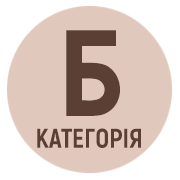LANGUAGE WORLD OF COMPOSER MYKOLA LYSENKO
Keywords:
Mykola Lysenko, composer’s language world, national language consciousness; orthographical and grammatical, morphological and syntactic, lexico-semantic and word-formative practices.Abstract
In the article, language consciousness of the founder of Ukrainian national music Mykola Lysenko and creation of his linguistic portrait became the research object for the first time. The article rested on three main problems: the composer’s national language world-view, linguistic knowledge and language activity. The evolution of language consciousness of composer has been traced based on his life stages: childhood and youth, studentship, maturity. Formation of linguistic consciousness has been revealed at a broad social and lingual background of the second half of 19th – beginning of 20th century. This is a period of the rise of Ukrainian national self-realization and tough fight of Russian Empire with Ukrainian national liberation movement. Life circumstances and national world-view of Mykola Lysenko have developed against the decrees of invader country – Russia. The main source of research is the composer’s epistolary heritage, especially his 550 letters. Based on this source and memories about composer we present a broad picture of his national language self-realization: selection of language is a selection of individual national path and confirmation of isolation of the Ukrainian nation; source of learning of languages – folklore, including song works; reading and popularization of Ukrainian literature are the effective ways of strengthening of Ukrainian language (particularly works of P. Kulish, Marko Vovchok, Т. Shevchenko); translation of fine and sacred literature (Bible in particular) in Ukrainian language is its empowerment and confirmation of multi-functionality; active participation in political as well as cultural and educational life is the most broadest field for language realization (particularly, foundation of the private School of Music and Drama in 1904, participation in foundation of Ukrainian scientific society, 1907); purposeful development of the Ukrainian theatre with the language ideological purpose; development of the Ukrainian scientific language; categorical imperceptions of liberal views of the Ukrainian language development in so called close cooperation with the Russian liberal intelligentsia. Among the basic problems of the article are the composer’s linguistic knowledge and language activity. The composer’s linguistic knowledge has been analyzed based on his orthographical and grammatical, morphological and syntactic and word-formative practices. Methodical use of phonetic orthography principle has been particularly brought to life, as well as reproduction of orthographical struggle atmosphere as a political symbol of dependency or independency of Ukrainian development. The analysis has also been made of the composer’s morphological-syntactic practices which reflect two trends: specific south-eastern dialect use of grammatical forms and occasional display of interference phenomena. The composer’s lexico-semantic and word-formative practices had revealed his exclusive language talent which had been shown not only in perfect knowledge of folklore layers of our language, but also in ability of the author’s word-formation and figurativeness of the expression. In the context of the national language self-realization, composer’s use of onim lexicon (nomina propria) is to be noted: ethnicons, anthroponyms, demonyms. His language activity has been concentrated at working on the future Dictionary under the editorship of B. Hrinchenko, on preparation of translations’ publishing of P. Kulish and Bible, on popularization of the Ukrainian language through musical-dramatic art. Language world of Mykola Lysenko is the unique image of the Ukrainian national liberation movement in the second half of 19th and the beginning of 20th century and bright confirmation of language social and creative role in the national and state life.
References
Бевзенко С. П. Українська діалектологія. – Київ, 1980. – 245 с.
Гринченко Б. Предисловіе // Словарь української мови / [Упорядк., з дод. власн. матеріялу Борис Грінченко]. – Київ, 1907–1909. – Т. I. – Київ, 1958. – С. IХ–ХХХII.
Ґайда Роман. Пляцко Роман. Пулюй Іван (1845–1918). Визначні діячі НТШ. Життєписно-бібліографічний нарис. – Львів, 1998. – 284 с. 4. Корній Л. П. Микола Лисенко як творець української національної моделі романтичного стилю // Микола Лисенко, його діяльність і стильові параметри творчості. [Електронний ресурс] – Режим доступу: http://knmau.com.ua/chasopys/15_NBUV/docs/02_Korniy.pdf
Курс сучасної української літературної мови за ред. Л. А. Булаховського : у 2-х т. – Т. 1. – Київ, 1951.
Лисенко М. В. Листи / [Упорядк., примітки та коментарі О. Лисенка]. – Київ, 1964. – 533 с.
Лисенко М. В. Листи / [Авт.-упоряд. Р. М. Скорульська]. – Київ, 2004. – 680 с.
Матвіяс І. Г. Українська мова і її говори. – Київ, 1990. – 163 с.
Микола Лисенко у спогадах сучасників : у 2 т. / [Редкол. : А. П. Лащенко та ін.]. – Київ, 2003. – Т. I. – 342 с.
Поліщук Тетяна. Микола Лисенко – Гетьман української музики [Електронний ресурс] – Режим доступу: http://storinka-m.kiev.ua/article.php?id=576
Таранченко О. Г. Микола Лисенко у роботі над оперним лібрето: особливості творчого процесу // Микола Лисенко, його діяльність і стильові параметри творчості [Електронний ресурс] – Режим доступу: http://knmau.com.ua/chasopys/ 15_NBUV/docs/02_Taranchenko.pdf







